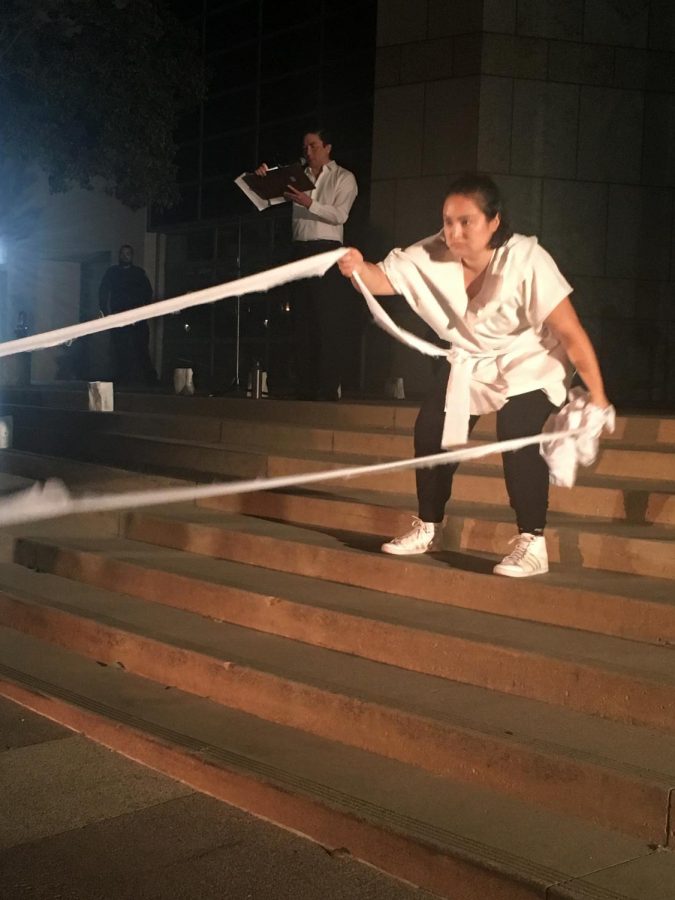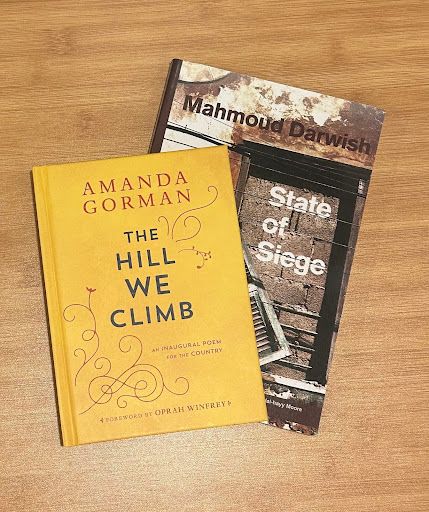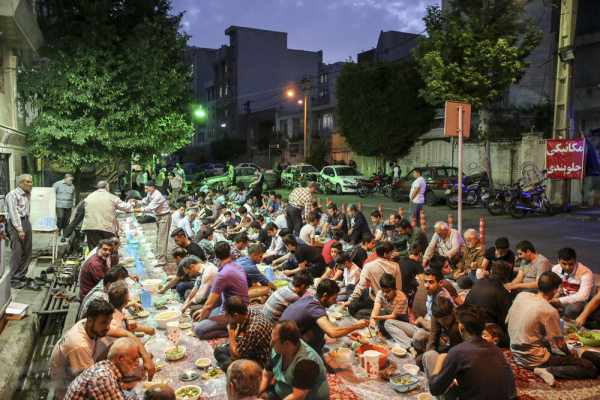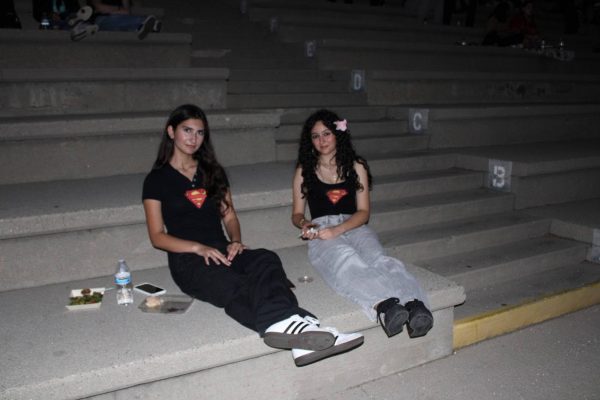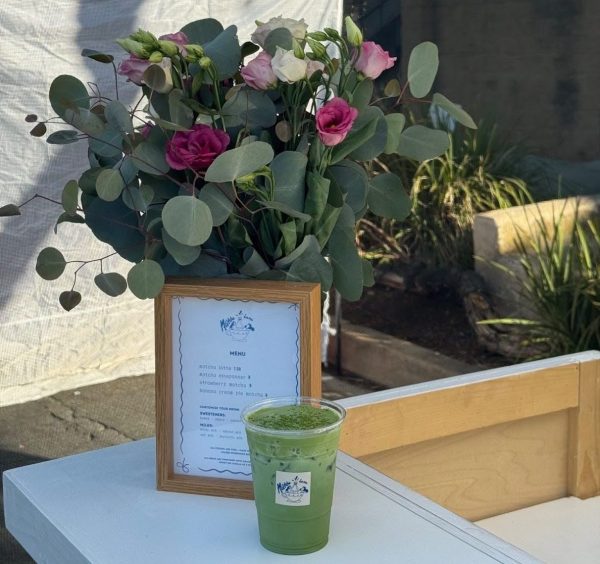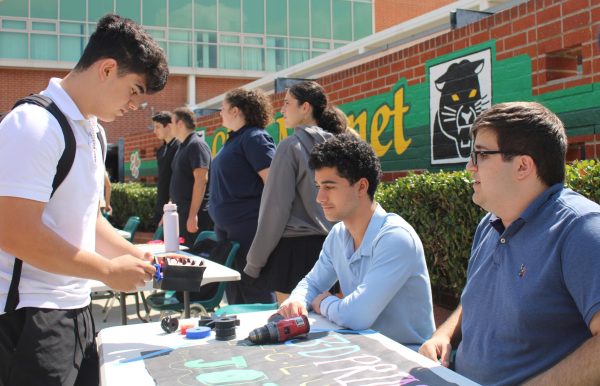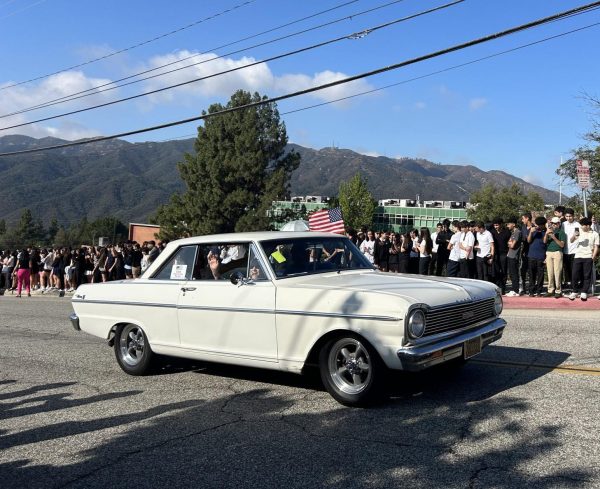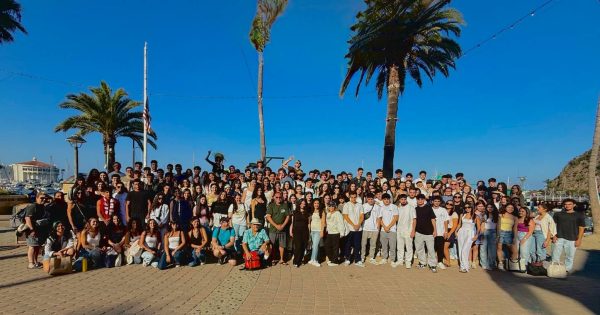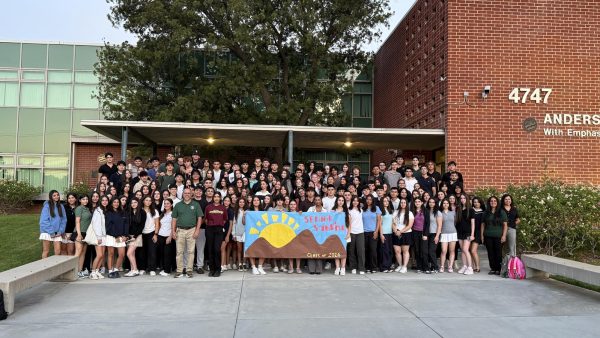“Will you hold this with me?”
Past and Present: Conversations with the Future Project comes to a close
A dancer moves lyrically with a cloth to the rhythm of the typewriter.
On a cool night in front of the Japanese American National Museum (JANM), people sat, sipping barley tea and writing letters to people in migrant detention centers. Others listened to the hyper-location specific broadcast which shared recordings from collaborative activations throughout the residency of poet and activist, Traci Akemi Kato-Kiryama.
On Sept 2 at 8 p.m., about 30 members of the Los Angeles community gathered for this final night of Past and Present: Conversations with the Future, a project in partnership with the JANM and part of the Little Tokyo Summer Arts Series. The project took place from sunset to 10 p.m. and consisted of nightly performances, letter writing, and discussing and listening to stories from the past and the present.
“Being able to sit with people and writing letters, having some good tea, it’s an experience that’s so intimate that you don’t get to have it often and you always meet really amazing people,” said Mya Worrell, a coordinator of the program.
As it approached 8:15, people began to walk over to the chairs which had been set up and waited for the performance.
The wall across from the museum which represented the old, was lit up with letters from WWII Japanese American Incarceration. The wall on the museum which represented the new showed pictures of letters from current detention centers along with pledges and messages of support.
On this particular evening, accompanying the readers and movers was the music of an accordion and the sound of a typewriter.
The performance began as Kato-Kiriyama entered the audience, wearing a white shirt and black pants, holding a long strand of fabric. Three other women entered with her, wearing the same thing and holding their own bundles of fabric.
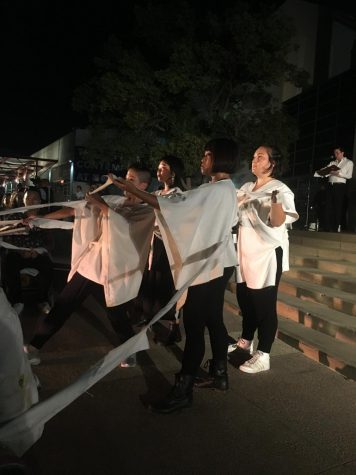
All of the dancers gather together at the end of the performance and ask, “Will you hold this with me?”
With the sound of the music and the typewriter, they began to stretch one of the long strands of fabric between the audience and they brought another through the audience and began to wrap it around themselves. After stretching out the long strands of fabric, they raised them into the air and dropped them. Then, the readings commenced.
The organizers read many letters from the WWII concentration camps and even some from migrant detention centers today. The letters showed how similar the two situations were and showed the sadness and despair coming from inside the camps.
“My experience as a detainee has been very difficult,” one of the letters read. “But I am willing to persist because there is no other option. I am afraid to return to my country.”
After sharing the letters, the readers and movers asked the audience, “Will you hold this with me?”
As they asked, the movers brought the fabric around the audience and had people hold onto it until all members of the audience were intertwined in the long strands of fabric.
After that performance, audience members were encouraged to write letters and listen to the radio station or simply discuss it with others who were there.
Joy Yamaguchi, a coordinator of the program and a member of Nikkei Progressives, stressed how she wanted people to be aware of what was going on.
“We really need to activate this community to be thinking about the future and be thinking about solidarity work,” she said. “[People should] be aware and think about the humanity of it all and just know that it’s about caring and building stronger communities.”
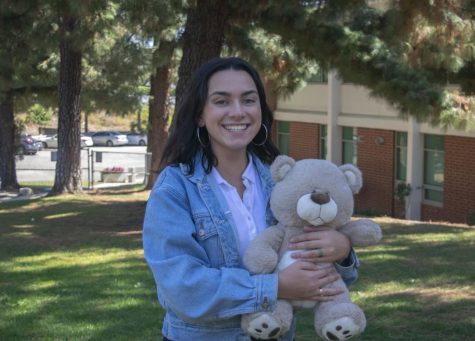
Hobbies/Interests: immigration, healthy lifestyle, dance, art, writing
Spirit animal: Butterfly
Places you want to travel to: Bora Bora, Greece,...



